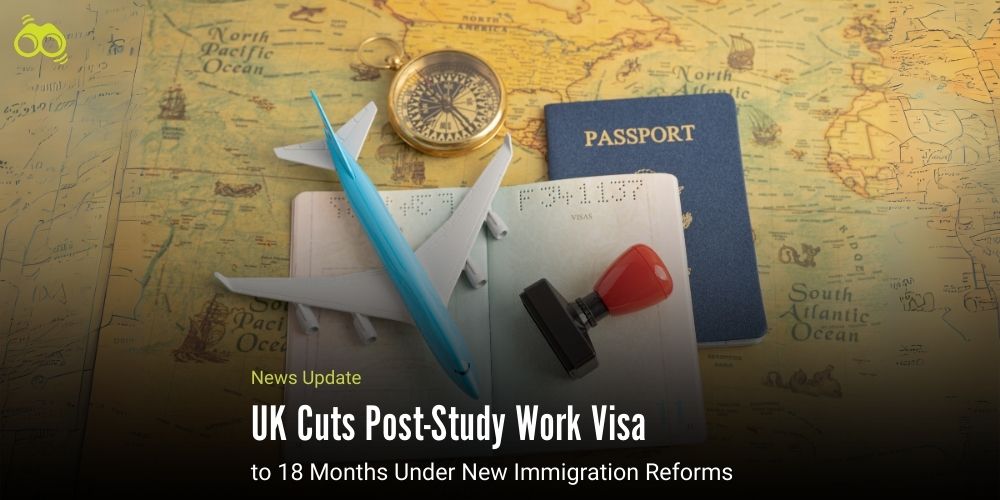English Language and Sponsorship Standards Tightened for UK Study Visas
UK Government Introduces Tougher Rules for International Students
The UK has long been a leading destination for international students, attracting over 732,000 annually with its prestigious universities and diverse academic opportunities. However, recent changes to visa policies are set to reshape the higher education landscape, introducing new challenges for foreign students seeking to study and work in Britain.
The White Paper on Immigration outlines stricter regulations, including a reduction in post-study work permit durations and potential increases in tuition fees. These reforms are being introduced at a time when international students make a significant contribution to the UK’s economy and academic institutions. Consequently, with visa restrictions tightening and costs rising, many prospective students may reconsider their plans, which could impact Britain’s global appeal as an education hub.
One of the most notable reforms reduces the post-study work visa period for graduates from 24 months to 18 months, and for PhD students from three years to 18 months. The Graduate route, introduced in July 2021, was initially designed to allow international graduates to stay in the UK for two years (or three years for PhD students) to work or seek employment. However, this change may limit long-term career opportunities for international students hoping to remain in the UK.
Additionally, the government is considering imposing a levy on higher education providers income from international students, with the revenue to be reinvested into skills development. While this policy aims to support workforce growth, it could lead to increased tuition costs, making UK education less accessible for foreign students. Beyond financial reforms, the UK is also introducing higher English language requirements. Skilled Workers and other visa applicants will need to meet the B2 (Independent User) level, as opposed to the previous B1 standard, under the Common European Framework of Reference for Languages (CEFR). Furthermore, a new language requirement at the A1 (Basic User) level will be introduced for adult dependents of workers and students, with plans for gradual increases over time. These measures are expected to restrict migration to those with stronger English proficiency.
To prevent the misuse of student visas, the UK Government is tightening regulations for educational institutions that enrol international students. To retain their sponsorship licence, institutions must now meet stricter benchmarks, including maintaining a visa refusal rate below 10% (unchanged), ensuring that at least 95% of students commence their course (up from 90%), and achieving a course completion rate of at least 90% (up from 85%).
Additionally, colleges and universities will be categorised under a Red, Amber, or Green rating system based on their compliance and performance. These ratings will be publicly available, increasing transparency and enabling both the government and prospective students to assess the standards of different institutions. Overall, these reforms mark a significant shift in the UK’s approach to international education, prompting concerns about the country’s long-term appeal as a preferred destination for global students.
Editor’s Note:
The UK’s proposed immigration reforms mark a clear shift in policy—one that risks undermining its longstanding reputation as a top destination for international students. Reducing post-study work visa durations and increasing language requirements may deter highly capable students who are seeking not only academic experience but also long-term career opportunities. The possibility of higher tuition fees through a proposed levy further raises concerns about affordability and access. While tightening standards may be seen as a move to control migration and ensure institutional accountability, it could also unintentionally send a message that international students are less welcome.
Skoobuzz highlights the significant role of students in economic, cultural, and academic progress, asserting that policy decisions should carefully balance regulation and inclusivity. The UK should exercise caution to avoid sacrificing global competitiveness in pursuit of immediate political objectives.














0 Comments (Please Login To Continue)